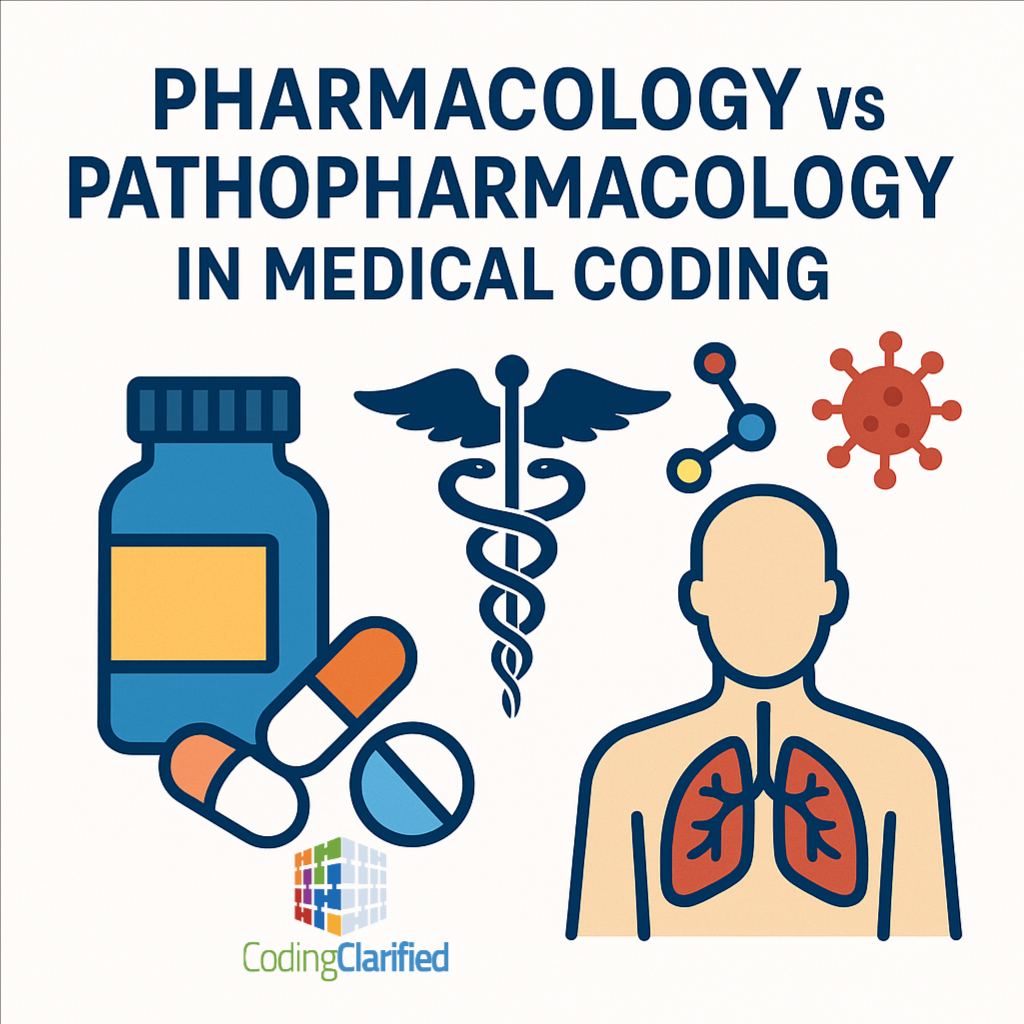Are Pharmacology and Pathopharmacology Important in Medical Coding
Medical coders do far more than match words to numbers. They interpret clinical documentation to tell the patient’s story accurately through codes. To do that well, coders must understand how diseases develop and how medications affect the body. That’s where pharmacology and pathopharmacology in medical coding come in.
What Is Pharmacology?
Pharmacology is the study of drugs — how they work, how they’re absorbed and metabolized, and how they treat specific conditions.
For medical coders, pharmacology knowledge helps to:
-
Recognize drug classifications and link them to the correct conditions (e.g., insulin → diabetes mellitus).
-
Identify drug routes of administration that may affect CPT or HCPCS coding (e.g., oral vs. intravenous).
-
Understand documentation clues about treatment type, such as when an infusion, injection, or oral medication is used.
-
Distinguish therapeutic drugs from diagnostic agents, which may determine separate billing codes.
In short, pharmacology helps coders interpret why certain medications appear in a record and ensures accurate assignment of procedure and diagnosis codes.
What Is Pathopharmacology?
Pathopharmacology combines two areas of study: pathophysiology (how diseases develop and affect the body) and pharmacology (how drugs act to counter those effects).
In medical coding, pathopharmacology understanding helps coders:
-
Connect the disease process with its pharmacologic treatment — crucial when coding complex chronic conditions like hypertension, heart failure, or diabetes with complications.
-
Recognize adverse drug reactions and drug-induced conditions (e.g., drug-induced liver injury or chemotherapy-induced anemia).
-
Accurately apply codes that differentiate disease etiology, such as “secondary to medication use.”
-
Improve clinical validation, ensuring coded diagnoses align with the provider’s documentation and treatment choices.
Key Difference Between Pharmacology and Pathopharmacology in Medical Coding
| Area | Focus | Application in Coding |
|---|---|---|
| Pharmacology | The study of drugs and their effects on the body | Helps coders identify and link medications to diagnoses and procedures |
| Pathopharmacology | The study of how drugs interact with disease processes | Helps coders understand cause-and-effect relationships between drugs and medical conditions |
Why Both Matter for Medical Coders
Mastering pharmacology and pathopharmacology helps coders move beyond memorization and into clinical reasoning — a skill increasingly emphasized in modern coding roles.
-
It enhances coding accuracy by aligning medication use with appropriate diagnoses.
-
It strengthens auditing and compliance by validating documentation integrity.
-
It supports risk adjustment and HCC coding, where treatment choice reflects disease severity.
-
It makes coders more confident when communicating with providers or clinical staff about discrepancies.
Pharmacology and Pathopharmacology in Medical Coding: The Bottom Line
A coder who understands pharmacology knows what a drug does.
A coder who understands pathopharmacology knows why it was prescribed and how it affects the disease.
Both skill sets transform coders into valued clinical interpreters — ensuring documentation and coding truly reflect the patient’s care story.
Guidelines for Coding Pathology and Laboratory Services
Coders’ Specialty Guide 2026: Pathology/ Laboratory (Volume 1 & II) Print + eBook

